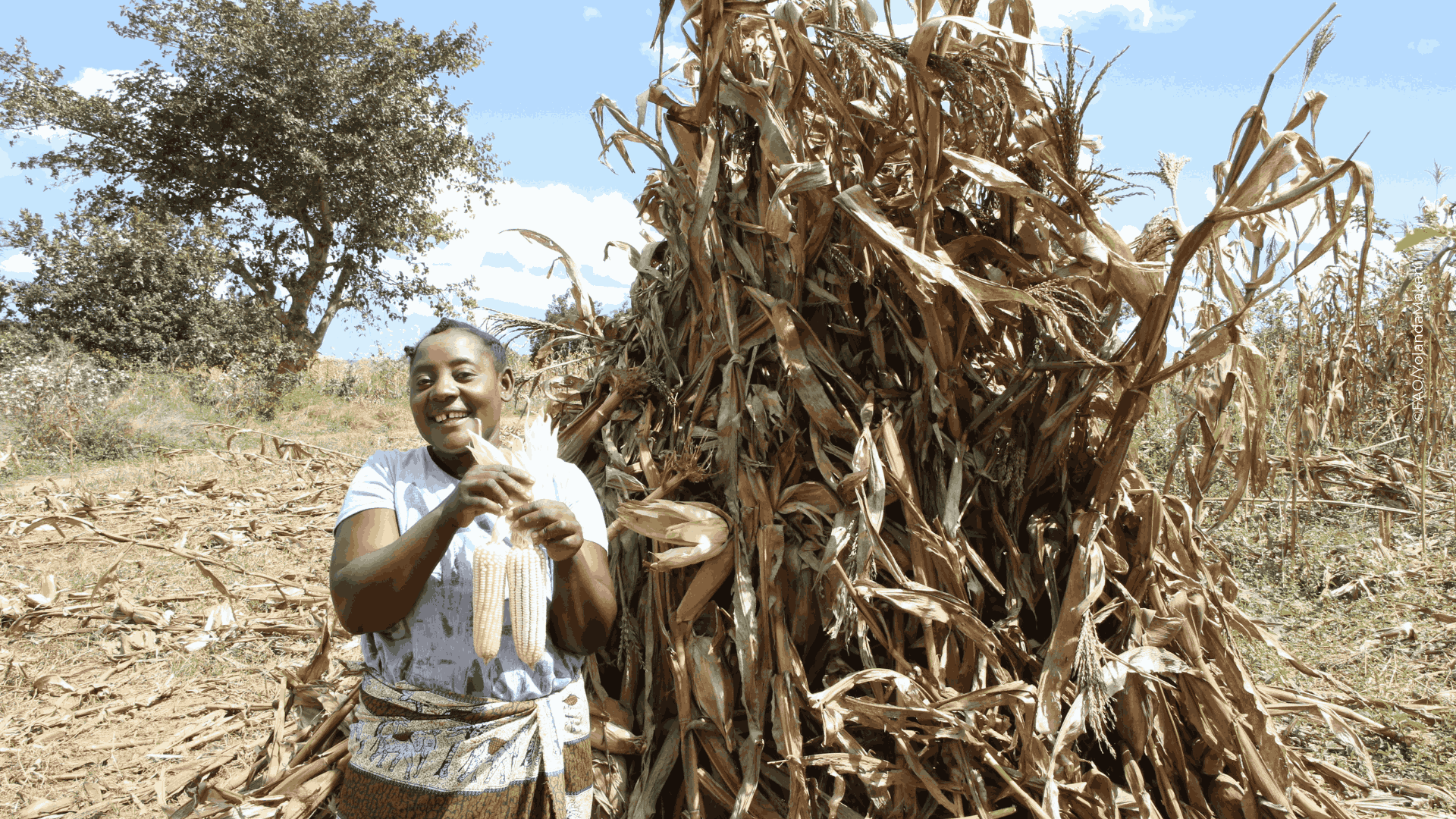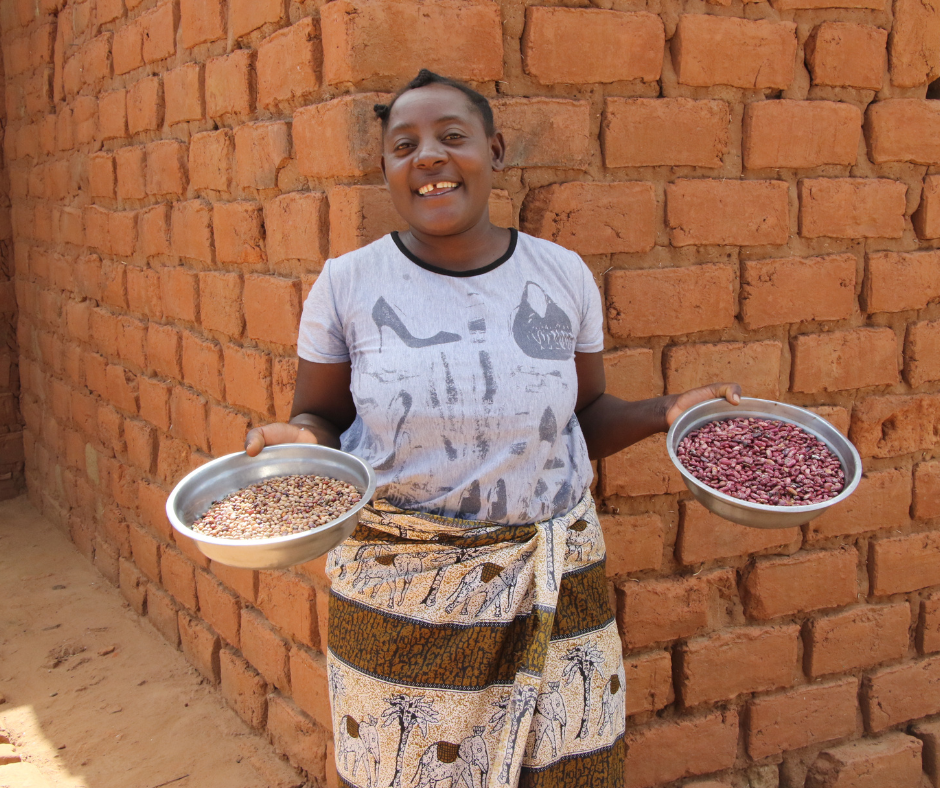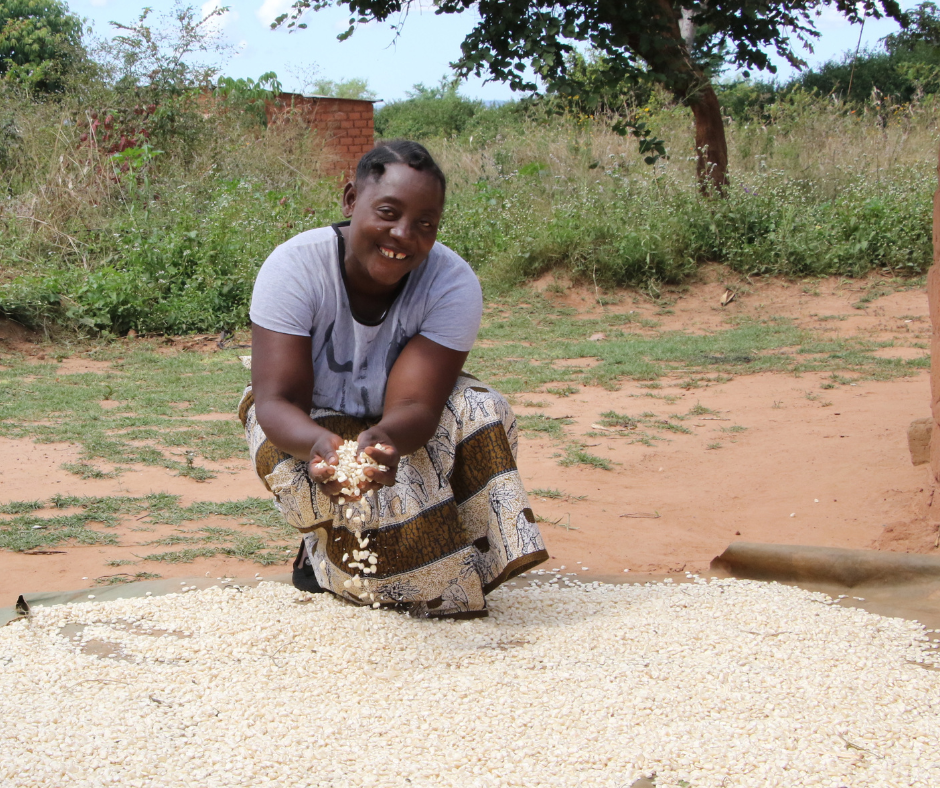
Climate-Smart Farming Transforms Livelihood of Fainess Chisi, a Zambian Farmer
Fainess Chisi with her maize harvest, grown with FAO support under the Emergency Drought Mitigation project in Chongwe district.
FAO/YolandaMakani
20/06/2025
Fairness Chisi, a smallholder farmer in Chongwe District, Zambia, is one of many rural farmers whose livelihoods were severely affected by the 2023 – 2024 El Nino drought during the last farming season. The Food and Agriculture Organization of the United Nations (FAO), through the Central Emergency Response Fund (CERF), is working with smallholder farmers like Fainess to improve food security and resilience in the face of climate impacts.
For Fainess and her family, the drought brought hardship and hunger. With inadequate rainfall and no access to certified seed or fertilizer, her household was left with no harvest, no food and no income. “We didn’t harvest anything. We had no water and no income to buy food. My three-year-old child became malnourished,” she explained.
In December, FAO through the Emergency Drought Mitigation Project, with funding from CERF, delivered certified seed and fertilizer to affected farming communities in Chongwe district. The support package consisting of seeds (maize, cowpeas and beans) and fertilizer enabled Fainess to plant. “With the assistance from FAO, we were able to plant certified seed and apply fertilizer. Now, we have food,” said Fainess. “We have harvested beans and cowpeas for relish and expect 15 bags of maize, which is enough to feed my family until the next season. We’re now eating healthy, nutritious meals.”
This emergency assistance not only addressed immediate food needs but also helped farmers transition toward more resilient farming practices. FAO and Ministry of Agriculture conducted trainings on conservation agriculture techniques, including intercropping, ripping and basin-making. Fainess adopted these practices in her farming and these practices helped retain soil moisture, improved crop performance and reduced the impact of erratic weather.
“The new methods are very different from the traditional way of farming. The maize grows well,” she said. “I used these techniques when I planted the certified seed. The results are encouraging.”


"I have learned how to grow enough food for my family. With food on the table, malnutrition is no longer a threat in my home."
Fainess highlighted the need for more timely and comprehensive support: “Our beans didn’t grow well because of too much rain at once, and armyworms also affected the maize. It would help to receive insecticides in the support packages.”
She also sees the value of the trainings conducted by Ministry of Agriculture, particularly around food preservation. “I didn’t know how to dry cowpea leaves for relish. If I had that knowledge, it could help us during the hunger season.” Fainess hopes for early training, increased access to inputs and the ability to plant more resilient crops like groundnuts and soybeans, especially in areas where rainfall is unpredictable.
Fainess’ story is a clear demonstration of how climate-sensitive interventions and targeted support can transform lives. Through partnerships like FAO and CERF, vulnerable farming households are not only surviving climate shocks, but they are also learning to thrive. As Zambia continues building resilience in its agrifood systems, stories like Fainess Chisi’s serve as success stories of how timely support, inclusive training and sustainable agriculture can help rural communities adapt to a changing climate and secure a better future.
